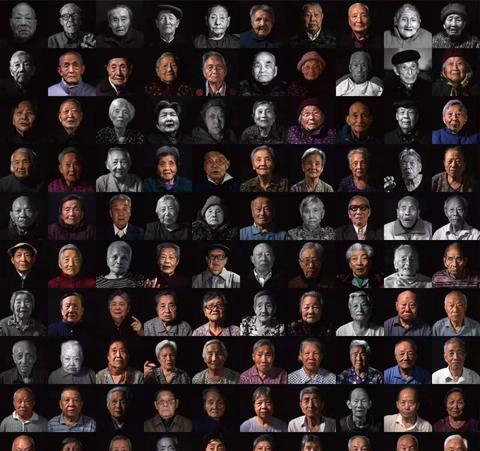Source: Overseas Network

Infographic: Portraits of some survivors of the Nanjing Massacre (Photo/Xinhua News Agency)
December 13 is the eighth National Day of Commemoration for the Victims of the Nanjing Massacre. On this day of national mourning, we once again pay tribute to the 300,000 compatriots who died in the Nanjing Massacre in the name of the country. On Chinese social media, topics such as "survivors tell the tragic situation of the Nanjing Massacre", "The pain of the Nanjing Massacre will never be forgotten", "90 scholars tearfully recall the surviving experience of the Nanjing Massacre" and other topics have taken turns to rush to the hot search; in the circle of ordinary Chinese, "in the name of the country, mourn my compatriots" and "as historical evidence, remember every report about him and her" and other reports about the National Public Memorial Day... This is a collective expression of Chinese emotion: 84 years have passed, but the pain of the Nanjing Massacre in China will never forget!
The Nanjing Massacre was the darkest moment in human history. On December 13, 1937, the Japanese army invaded China and brutally invaded Nanjing, creating a tragic Nanjing Massacre, in which 300,000 compatriots were brutally killed, countless women were trampled and maimed, countless children died, a large amount of property was plundered, and the ancient capital of Nanjing became a hell on earth, which was a horrific crime against humanity. Cai Lihua, a survivor of the Nanjing Massacre who died on March 1 this year, recalled the dark history before her death, and said sadly: "I personally saw the Japanese army stab my father blind in the eyes with a bayonet, make an egg-sized hole in the eye, and then shoot him several times in a row." The atrocities of the Japanese invasion of China in Nanjing, which American John Maggie risked his life to photograph, let the pain soaked in blood and tears hit the chest of countless Chinese through 84 years. We want to travel through time and space, hug the children in the war of that year, and block the bayonets in their chests!
The Nanjing Massacre is one of the "three major tragedies" in the history of World War II, and the evidence is overwhelming and cannot be tampered with. However, Japan is still reluctant to face this history honestly. Today, when China solemnly commemorates the compatriots killed in the Nanjing Massacre, there is little coverage and reflection in the mainstream media in Japan. Japan's "cold" response on December 13 was not surprising, and since China established the National Day of Commemoration for the Victims of the Nanjing Massacre in 2014, the Japanese side has almost always adopted an evasive attitude, unwilling to face up to the facts of the aggression in the past, nor willing to sincerely apologize to the victims and their families.
Some Japanese politicians are not only reluctant to face up to history, but are obsessed with the "old imperial dream" of the past. Not long ago, 99 Japanese dignitaries paid high-profile visits to the Yasukuni Shrine, which enshrines World War II Class-A war criminals; former Japanese Prime Minister Shinzo Abe and former Defense Minister Tomomi Inada repeatedly denied the issue of comfort women and challenged the "Kono Talk" and the "Murayama Talk." In recent years, Japan has repeatedly tried to revise the pacifist constitution in order to seek to get rid of the military shackles of defeat in the war, and to create excuses for its military expansion by repeatedly hyping up the "China threat theory". According to the Nihon Keizai Shimbun reported on December 11, Japan's defense budget in 2022 will reach 5.4 trillion yen, the 10th consecutive year of growth and a record high. With regard to the crimes against humanity committed during the Nanjing Massacre, some Japanese politicians not only never mentioned anything, but instead followed the United States in playing the "human rights card" against China in a vain attempt to create a diplomatic "chip" with China.
In Japan, there is a voice on the question of the history of aggression that the war of aggression has been over for decades, and there is no need for the Japanese to apologize endlessly. For example, former Prime Minister Shinzo Abe said in a speech on the 70th anniversary of Japan's defeat in 2015, "We cannot let future generations who have nothing to do with the war bear the fate of continuing to apologize." If such a "perverse reason" is followed, today's Chinese have no reason to choose forgiveness for their suffering compatriots! How can a Japan that has brought great disasters to its neighboring countries in history and still refuse to admit the crimes it has committed, but instead wantonly deny history and wantonly expand its armaments, gain the respect and trust of its neighboring countries and even the international community? History is the best textbook and the best sobering agent. The blood and tears of 84 years have not dried, China will not forget, Japan should not forget! (Chen Yang)
Overseas network copyright works shall not be reproduced without authorization.